Imagine finding out the cousin you’d spent some of the best moments of childhood with grew up to be a serial killer.
That’s what happened to Edna Cowell Martin, Ted Bundy’s cousin, in the 1970s, she says in her new memoir, “Dark Tide.”
Martin, 72, is the first of Bundy’s relatives to write a book about growing up with the serial killer who murdered at least 30 women and girls between 1974 and 1978.
In her memoir, Martin recalls the moment she first knew her cousin was guilty. It was in 1975, after Bundy had been arrested for kidnapping and released on bail. Martin still wanted to believe the cousin she thought she knew was innocent.
TED BUNDY SURVIVOR REVEALS WHAT SAVED HER FROM SERIAL KILLER’S SORORITY-HOUSE RAMPAGE
Bundy was driving her to a bookstore near a university after lunch one afternoon so she could get something she needed.
“I ran in, and I got my stuff, and the cash register faced the window. So, I could see the street down below behind the store … and all these people were pointing and rushing down towards my left,” Martin recalled. “And I was wondering what was going on there. I just got a bad feeling that something wasn’t good.”
TED BUNDY 50 YEARS LATER: HOW INVESTIGATORS TOOK DOWN INFAMOUS SERIAL KILLER WHO TERRORIZED COUNTRY FOR YEARS
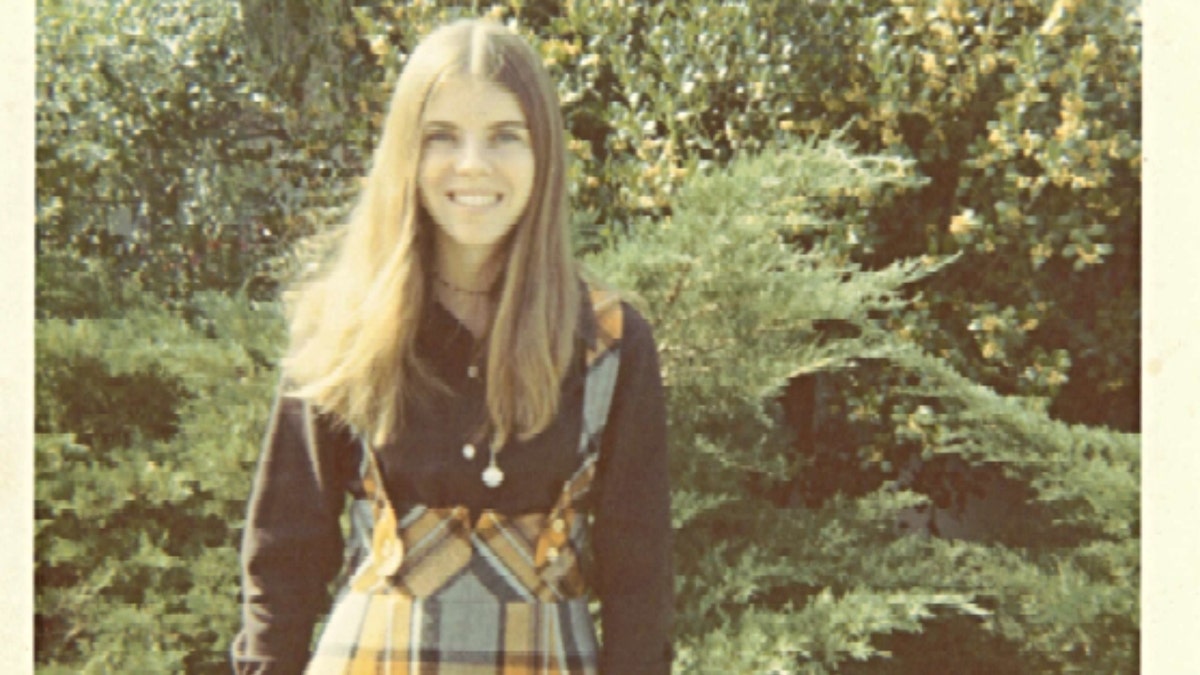
She exited the bookstore and saw people “milling all around someone, and then the crowd parted for a second.”
“I saw my cousin in the center of it, and he was standing there with his hands outstretched, like he was some kind of a messiah, and speaking loudly while he was slowly turning, saying, ‘I’m Ted Bundy’ over and over again,” Martin said. “That’s when it just hit me that no one would do that if they were innocent.”
“That was the chilling moment that I went from hoping beyond hope that this was all a big mistake, to realizing that this guy was a monster.”
She and Bundy had grown close in their adulthood, she said, and lived just a few blocks apart from each other. She had him over occasionally, and he would hang out with her friends and roommates. That made the news of his crimes so much harder to digest, she said.
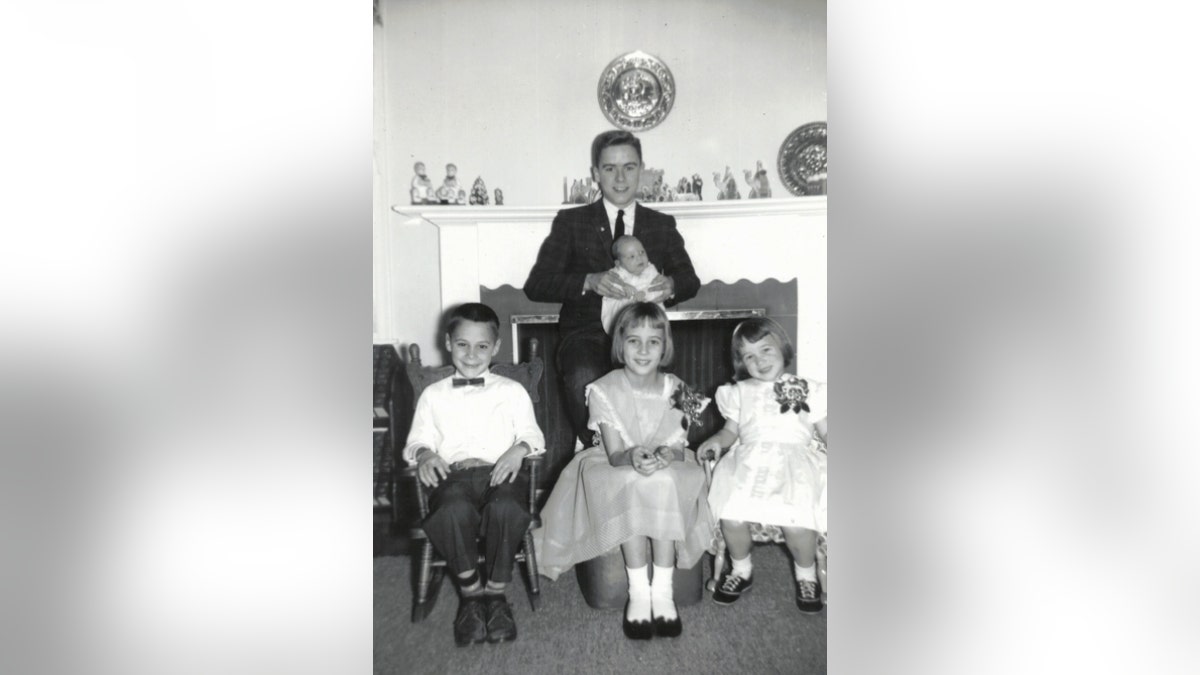
“In January of ’74, young women right in my neighborhood started disappearing within walking distance of where I lived — within walking distance of where Ted lived,” Martin recalled. “Three of them disappeared and were later found to be murdered by him. One of them lived right across the street and around the corner from me. So, Ted would walk from his apartment, pass by the front door of my apartment building … around the corner to where she lived. And just when I found that out … it just made me so ill.”
FOLLOW THE FOX TRUE CRIME TEAM ON X
Martin opens the book with a jarring scene, the moment she first learned of Bundy’s first arrest for attempted kidnapping in 1975, prior to the bookstore incident.

She was in her 20s at the time, packaging king crab legs in a remote area of Alaska in 1975 — an obscure job she took on with college friends for adventure’s sake — when she heard the news that the cousin she once “adored” had been arrested.
She remembers getting the call that changed the trajectory of her family’s life “in this remote place out in the wilderness — and it was a lot less settled then than it is now … on a ship-to-shore phone where anybody could tune into that frequency” and hear her conversation. It was Martin’s brother who called to break the news that their cousin had just been arrested.
TED BUNDY’S EX-GIRLFRIEND RECALLS HORRIFYING ENCOUNTER WITH THE SERIAL KILLER: ‘HE JUST LAUGHED’
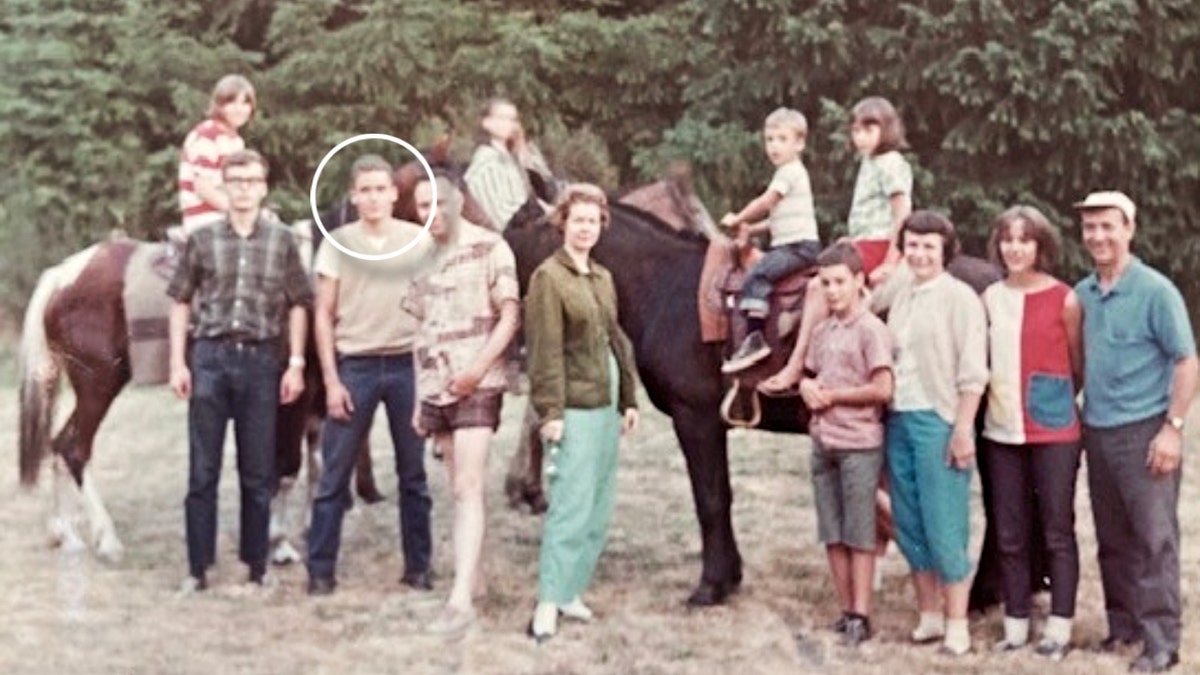
“It just completely upended my life,” Martin said. “And that’s how kind of everything just kicked off for this.”
SIGN UP TO GET TRUE CRIME NEWSLETTER
Martin’s book is a memoir about her life and Bundy’s strange place inside it, a piece of the puzzle that doesn’t quite fit even though it came in the same box as all the other pieces.
Her parents were intelligent and accomplished. They served in the U.S. military during World War II. Her father was a renowned pianist and college professor who taught music.
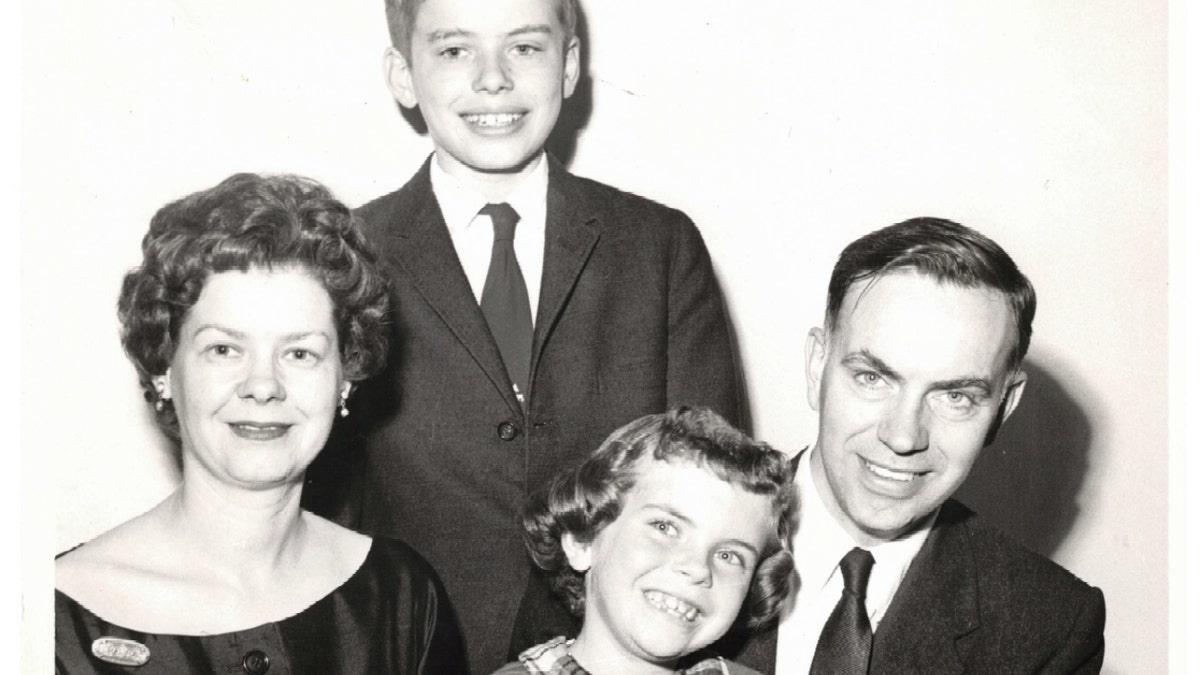
Martin and her brother were introduced to their cousin, Ted Bundy, at a young age when his mother moved across the country from Philadelphia to Washington state to be with family who would support her as she raised a son on her own, Bundy’s father not being in the picture. Martin explains her aunt, Louise Cowell, never told her family who fathered her son.
“This is just a theory on my part that Louise, and her attempt to protect [Bundy], never told him who his biological father was, and I know that it really bothered him,” Martin said.
‘PARALLELS OF EVIL’: TED BUNDY SURVIVORS SPEAK OUT, LINKING THEIR GRUESOME ATTACKS TO BRYAN KOHBERGER’S
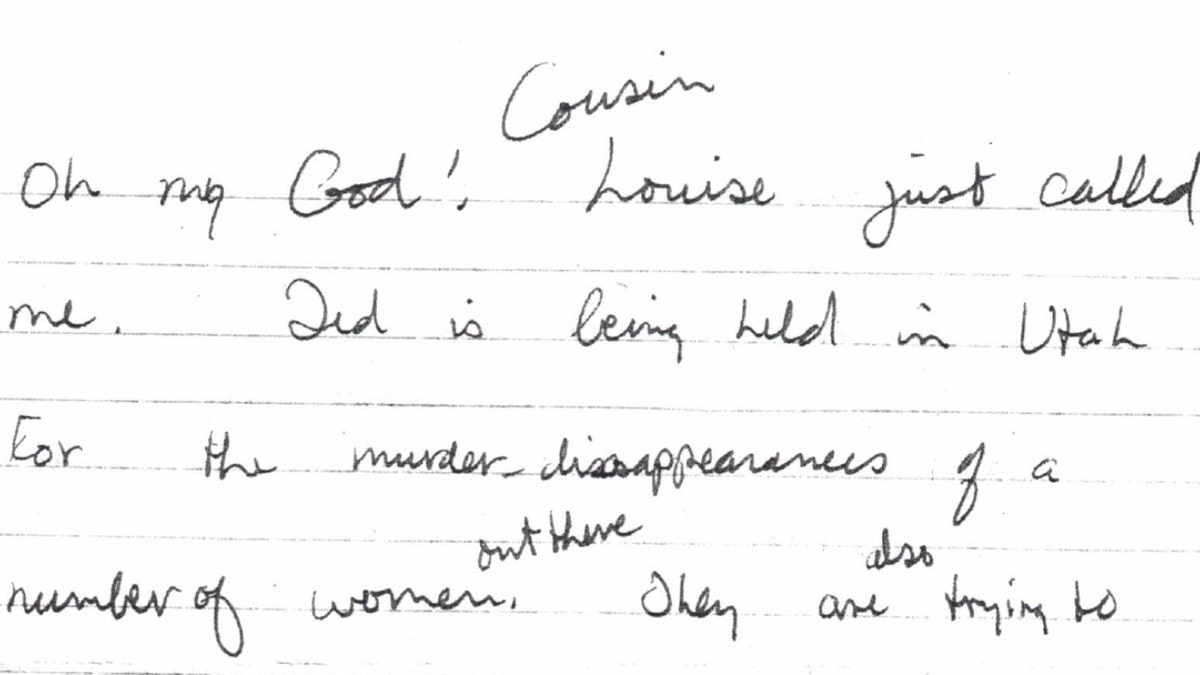
When she was living in Fayetteville, Arkansas, in 1969, where her family moved in the 1960s from Washington after his father got a new job, Bundy “made a special trip” to visit them on his way to Philadelphia to “find information on his biological father,” Martin explained.
“I think that would have answered a lot of questions for him,” Martin said. “We don’t know anything about his biological father and whether he had any kind of mental illness or anything. … It’s a big question mark.”
GET REAL TIME UPDATES DIRECTLY ON THE TRUE CRIME HUB
Martin’s book reflects on her time with Bundy as a child compared to her time with Bundy as an adult, when she began to grow suspicious of his behavior. The book includes letters from the serial killer to his family, written during his time in prison before his 1989 execution that show his narcissistic personality.
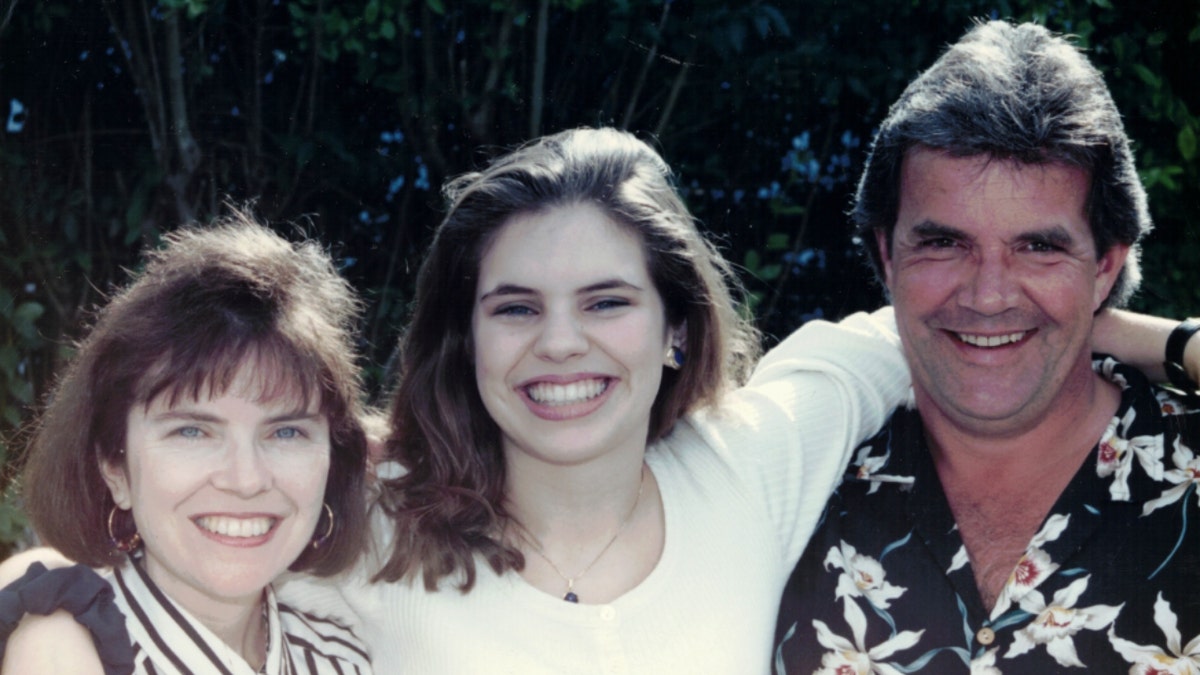
“He even implies that I’m being over emotional about these things, and I should get to know myself better, and once I know myself, I will calm down and not be so emotional,” Martin recalled of her correspondence with Bundy after his arrest. “He just got me madder and madder, and I’d write back to him, and he’d quote scriptures. And I was so offended by that.”
Martin also explains the impact Bundy’s crimes had on her as a young woman who once looked up to Bundy as her older cousin, and her family, which has tried to stay out of Bundy’s spotlight for decades.
“I’m hoping that it helps somebody along the way,” Martin said of her book, “because we don’t choose our families, right? They are who they are. They’re good or bad. … There’s nothing you can do about it.”
“Dark Tide” was released July 23.
Read the full article here










